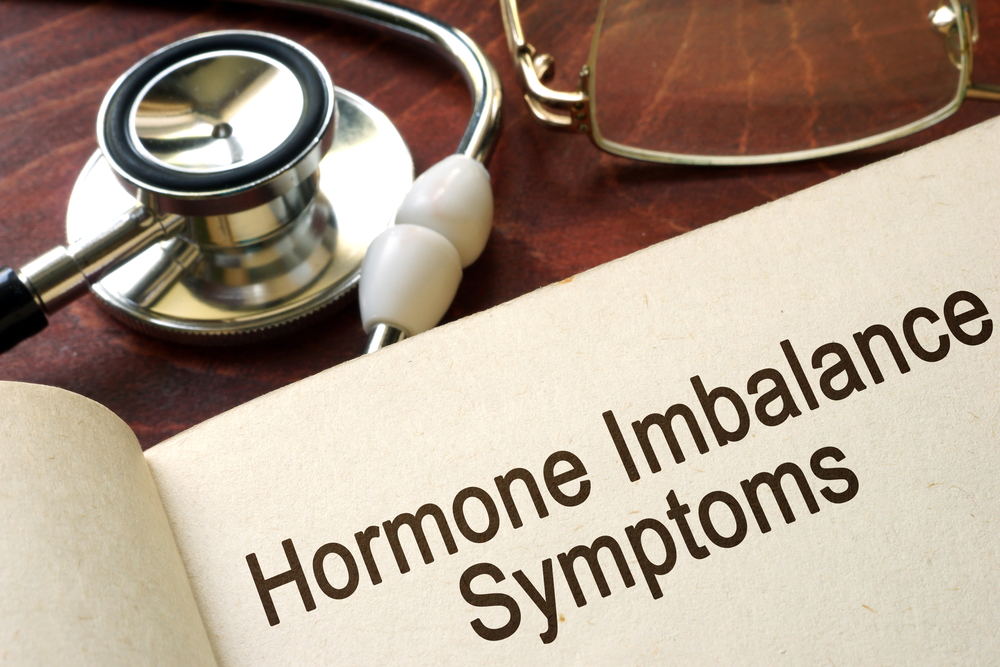

Hormonal Imbalance
What is and what does it mean?
If there is one thing that most women often complain about, it would be a hormonal imbalance.
However, this is not exclusive to women as men also experience such, with the only difference being the fact that the hormone concerned is different.
In the case of women, this is a vast predicament and often experienced, especially at a time with their monthly period.
Hormonal imbalance is also common during pregnancy and menopause.
It is essential to have a thorough understanding of what it is and what it means, including the treatment options that are available to eradicate its symptoms and to restore a healthier body.
A Closer Look at What It Is
Simply put, hormones are considered to be the chemical messengers in humans, and hence, any disruptions in their activities and levels will show an impact on the body in ways more than one. In the body of the woman, this would often involve estrogen and progesterone.
Estrogen is the one that is responsible for the sexual development, and they are produced in the ovaries, and they are dominant during the follicular stage of a menstrual cycle.
Progesterone, on the other hand, is abundant during the luteal phase.
As a woman ages, the ovary slows down the production of hormones in the body, and hence, causing an imbalance.
More than aging, however, it can also be caused by stress, medications, birth control pills, and health problems.
Consequences of Hormonal Imbalance
If you are suffering from an imbalance of hormones, one of the things that you are most likely to experience would be the breakdown of acne and the presence of other skin problems, as if like it is puberty all over again.
If you notice that your acne are deep and cystic, and they do not seem to be eliminated even with the use of topical creams, it is most likely caused by androgen.
This kind of hormone is the one that is responsible for the excessive production of oil, which can be considered as the culprit for your skin problems.
More so, the hormonal imbalance would also mean having extreme changes in mood, especially before your monthly period.
During the menopausal stage, the hormones that are responsible for the regulation of emotions fluctuate and are out of control. Estrogen is either below or above the right level.
It also triggers fluctuations in the production of serotonin, which is the reason why you might feel like more emotionally sensitive.
The fluctuations in the levels of your hormones can also have a negative impact on your sex life, mainly because it is often associated with decreased libido.
During peri-menopause, there is a decrease in the level of progesterone and dominance of estrogen, which results in lack of sex drive.
This can also lead to vaginal dryness and the lack of tension from the vaginal muscles.
This explains why women in the menopausal stage often complain about their sex life.
Aside from those that have been mentioned above, your hormonal imbalance can also mean being more irritable, persistently gaining weight, lacking focus, suffering from depression, and difficulty of getting into sleep.
Relief is Within Reach
Fortunately, hormonal imbalance is not a problem without a solution. Different treatment options are available, which will most likely depend on the severity of the problem and its outcomes. Among other things, one of the most commonly recommended by medical professionals is a change in lifestyle.
You may be asked to modify your diet, be engaged in a regular exercise routine, and have an improved sleep.
There are also medications that are available, but such should be only taken upon prescription from a medical professional.
Antidepressants and synthetic hormones can be prescribed.
Nonetheless, different individuals may have varying responses from this treatment option, which makes it more critical to do so only with professional supervision.
The first thing that you need to do is to recognize the presence of the problem and consult with experts to determine how you can restore the balance of your hormones.
Otherwise, you will not be only ruining your own life, but also the lives of people around you.
The Top Causes of Hormonal Imbalances In Women
Hormonal imbalance maybe a curse, but women are often left with no other choice but to deal with it.
Even with the availability of treatment options like hormone replacement therapy, prescribed medications, and even changes in lifestyle, there is still a huge percentage of the general population suffering from its consequences.
Lack of sex drive, persistent weight gain, explainable cravings, weird mood swings, and breakdown of acne are just some of its most common symptoms, which you will surely wish not to experience.
Among other things, one that will definitely help is to have an increased awareness about its causes, which will make you understand why such has to happen.
This is also a preliminary step in being able to find the relief that will work best in individual cases.
Poor Diet
As they say, you are what you eat. If you choose to eat healthy, which may be a sacrifice for most people who are used into eating junk, you will have a better state of health.
On the other hand, if you maintain a poor diet, you are a more likely candidate to a variety of health problems, which will include hormonal imbalance.
As it has been recommended by experts, your diet should be rich in green and leafy vegetables, fruits, and whole grains to keep your hormones at a favorable level.
If you are experiencing hormonal imbalance, one of the reasons would be the lack of fiber intake from your daily diet.
Make sure to eat fibrous foods to allow the body to eliminate excess hormones.
Environmental Factors
Pollution is another common cause of hormonal imbalance among women.
There are different toxins that get mixed in the air, which will have a negative impact in hormone secretion.
If you live in a bustling metropolis, there is a higher likelihood of suffering from hormonal imbalance.
In addition, even at home, the different products that you are using can contain a wealth of pollutants that can affect your hormones negatively in ways more than one.
Petrochemicals that are found in Styrofoam, cleaning agents, and even your car exhaust can lead into exposure to unnatural estrogens.
Once they are absorbed by the body, they will thrive in your receptor cells and may inhibit the production of progesterone.
Chronic Stress
 If you feel stress because of work, raising a family, managing your business, or even with just the smallest of things, there is a higher tendency of suffering from a hormonal imbalance.
If you feel stress because of work, raising a family, managing your business, or even with just the smallest of things, there is a higher tendency of suffering from a hormonal imbalance.
Every time that you are caught in a stressful situation, pregnenolone, which is essential in the production of female hormones, is diverted from its normal pathway, and hence, causing a hormonal imbalance.
In addition, if you are already in your menopausal stage, which is characterized by changed in hormone activity, you might be also more stressed, which can be partly due because of the thought that you are already aging and that your children are already having their own lives.
Medications
There is a reason why professional consultation is necessary before taking any medications – to make sure that they will not have an adverse effect on your body.
Several studies in the past have shown how medicines can be a cause of hormonal imbalance.
A perfect example of such would be in the case of birth control pills.
Although they are commonly used by some to treat hormonal imbalance, there are instances wherein it works the other way around as it becomes the cause and not the solution.
Taking pills can cause an increase in the level of progesterone.
Hormonal imbalance is also common for people who have suddenly stopped from taking birth control pills after a prolonged use of such.
Aging
It is a given fact of life that you will age in numbers, whether you like it or not.
As a consequence, you will also suffer from hormonal imbalance, which can lead into irritability, mood swings, and other common symptoms.
DHEA, which is considered to be a precursor to estrogen, testosterone, and cortisol, is linked to an imbalance in hormones as a result of aging.
More so, once you enter your menopausal stage, it is also most likely that hormonal activities will be disrupted, leading to the imbalanced levels of such in your body.
Treatments Available for Hormonal Imbalances?
While hormonal imbalance is a common problem among many women, this does not mean that you have no other option but to just deal with it.
Fortunately, several studies have been conducted in the past to discover a wealth of alternatives by which the problems can be resolved.
Each of the solutions that will be recommended below may have varying effects depending on the extent of the problem and the response of the body of the individual.
More importantly, the treatment options should be done only with professional supervision and recommendation to avoid suffering from adverse effects.
Natural Treatment Options
If you are a believer in alternative medicine, such would most likely be your top choice for the treatment of hormonal imbalance.
Most of the natural treatment alternatives are backed with extensive use as they have been practiced for a long time already.
They are also known for being readily available and cheap.
Phytotherapy, or the use of medicinal plants, is one of the options that can be taken into consideration.
They can be in their raw form or in supplements, which are readily available in the marketplace.
Since they are natural ingredients, the risk of side effects is low.
In some cases, the treatment of hormonal imbalance can be as natural as a tweak in your lifestyle.
It is recommended to have a healthy diet, engage in a regular exercise routine, avoid stress, and get enough sleep.
Through these things, your regular hormone activity can be restored, and the body will respond favorably.
Medications
 There are also prescribed and commercially available medications that will prove to be useful in treating hormonal imbalance.
There are also prescribed and commercially available medications that will prove to be useful in treating hormonal imbalance.
Some of them may be expensive, and you would often need a prescription from your doctor.
Before you start taking any medications, regardless if you have read about their effectiveness, make sure to first consult with a medical professional to know if it is ideally suited to your needs.
If your problem with hormonal imbalance is sexually relevant, one that is often recommended would be gonadotropin, which will induce ovulation.
More so, in one study from the University of Maryland Medical Center, it has been asserted that medroxyprogesterone will be helpful if the imbalance is a result of irregular monthly periods.
There are also synthetic hormone replacements that can be recommended by doctors.
These medications can come in the form of injections, patches, and pills, among others.
Another popular medication for hormone imbalance is birth control pills.
The synthetic hormones that are found in these medicines will be instrumental in balancing the excessive levels of estrogen and a minimal amount of progesterone.
Specifically, birth control pills can help in the treatment of Polycystic Ovary Syndrome, which is a hormonal imbalance that results in the irregularity of menstruation.
These tablets contain hormones that are made by ovaries.
Pellet Therapy
This is one of the treatment options for a hormonal imbalance that has been available in the United States since 1939.
It is asserted to be helpful in balancing the chemistry of the body and to restore the vitality that has been lost as a consequence of hormonal imbalance.
In this kind of treatment, you will need to meet with a qualified physician and pellets will be inserted on your hips, buttocks, or bikini area.
There will be a small incision, and once the pellets have been inserted, they will supply the hormones that will be needed by the body to trigger its balance.
According to those who have been practicing the method, the results can be felt quickly and can last for at least half a year.
It is essential to take note of the fact that there is no one-size-fits-all approach in the treatment of hormonal imbalance.
Each person has a unique body characteristic, and hence, there will be differences in the treatment options that may work best.
Something that might have worked on a friend of yours may not necessarily have the same effect on you.
The most important thing is to seek help from a doctor to know exactly what you need, and more importantly, to be assured of its safety and effectiveness.
